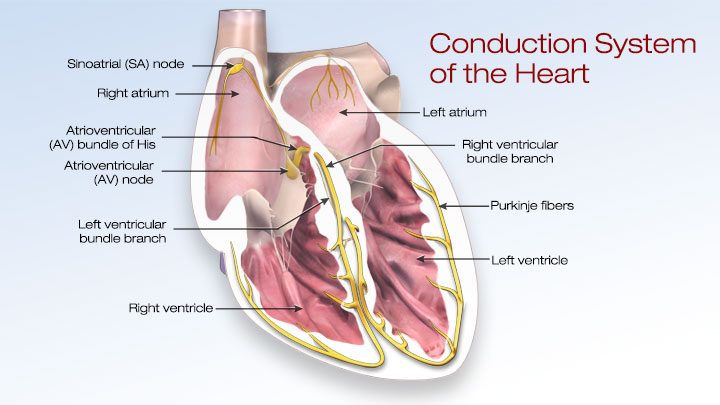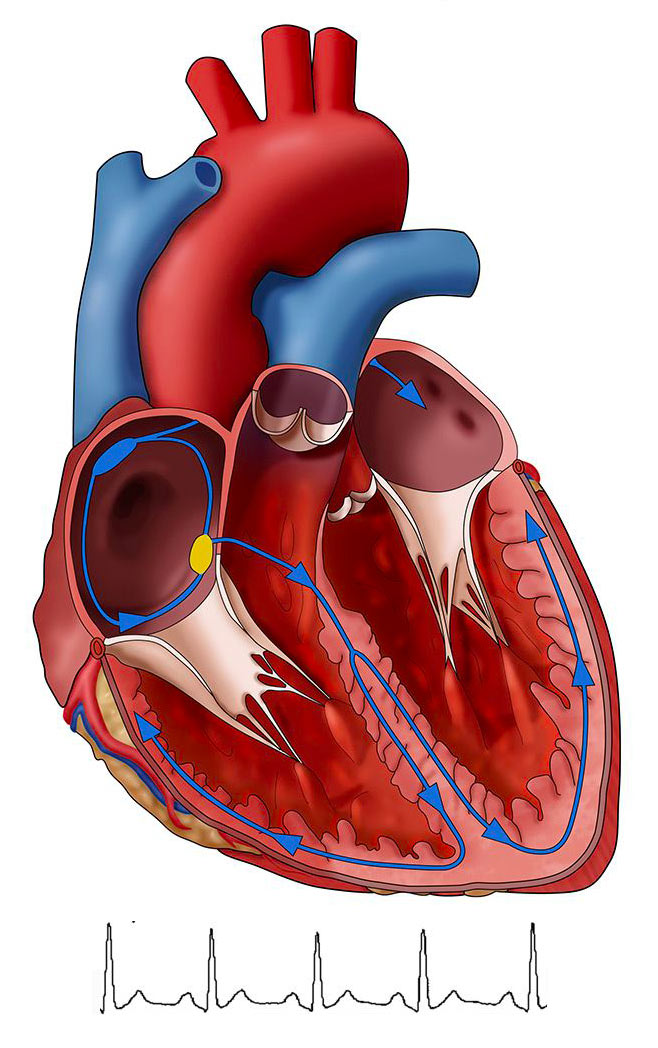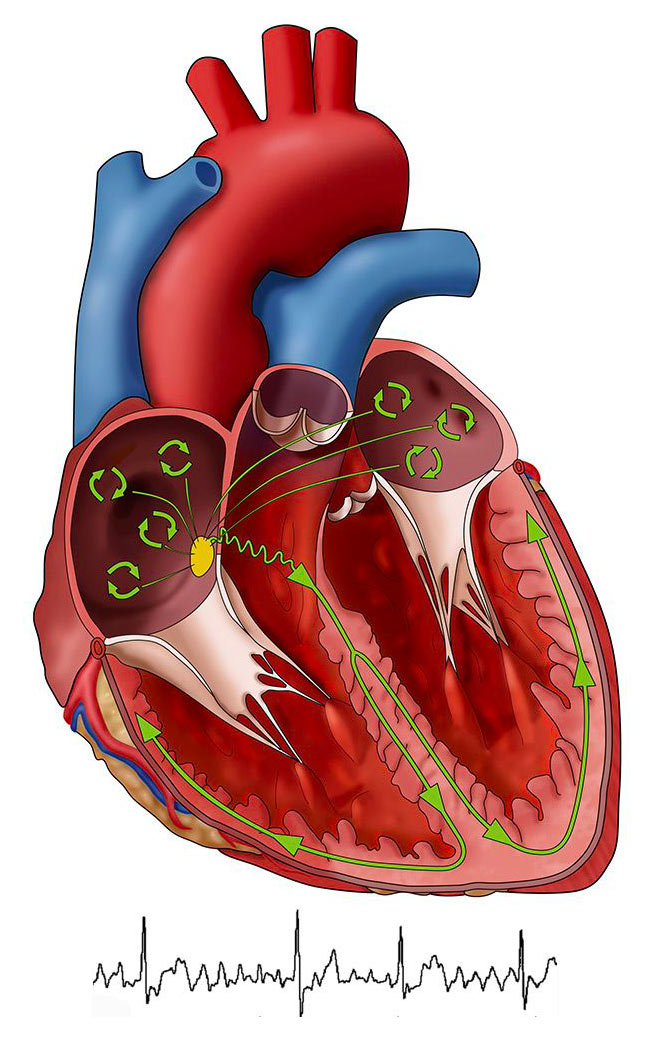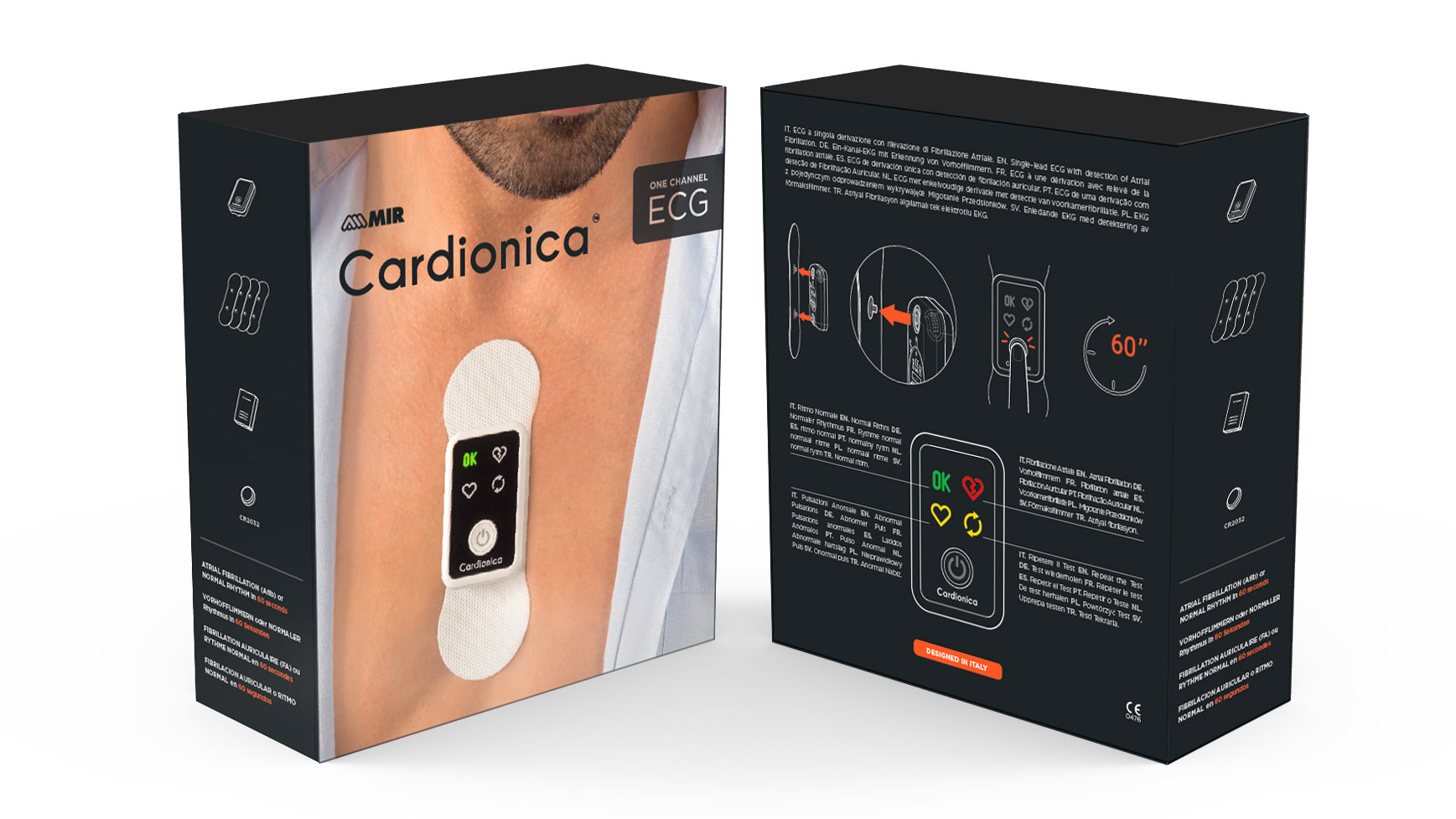
Medical info
What is Atrial Fibrillation?
Atrial Fibrillation (also called AFib or AF) is a quivering or irregular heartbeat (arrhythmia) that can lead to stroke and other heart-related complications. In atrial fibrillation, the upper chambers of the heart (the atria) beat irregularly (quiver) instead of beating effectively to move blood into the ventricles.
 Image Source: American Heart Association
Image Source: American Heart Association

Normal Heartbeat
A normal "sinus rhythm" starts in the sinoatrial (SA) node and spreads down to the atrioventricular (AV) node as the atria contract and force blood into the ventricles. The ventricles then contract and pump blood out of the heart as electrical signals reach ventricular muscle cells.

Atrial Fibrillation Heartbeat
Irregular electrical signals disrupt the normal conduction between the SA and AV nodes and cause the atria to quiver. This prevents them from effectively moving blood into the ventricles. It can lead to stroke or other heart-related complications.
Atrial Fibrillation and Stroke:
understand the risk
If you have AF, your heart beats irregularly and may not pump all of the blood through properly
If blood does not move quickly and smoothly dangerous clots may form
Blood clots that travel from the heart to the brain can cause a stroke
12.2 million new ischaemic strokes/year worldwide1
 Image source: Global, regional, and national burden of stroke, 1990-2016: a systematic analysis for the Global Burden of Disease Study 2016
1 GBD 2016 Stroke Collaborators, Lancet Neurol 2019
Image source: Global, regional, and national burden of stroke, 1990-2016: a systematic analysis for the Global Burden of Disease Study 2016
1 GBD 2016 Stroke Collaborators, Lancet Neurol 2019
Stroke is the second cause of death in developed countries and the third leading cause of disability.
101 million people worldwide are living with stroke aftermath. This number has almost doubled over the last 30 years.
Calculate stroke risk
CHA2DS2-VASc Score calculates stroke risk for patients with atrial fibrillation
Calculate your score
Your score: 0
You are not at risk but remember to check periodically!
You are at risk, use Cardionica and contact your doctor!
Atrial fibrillation is a major risk factor for ischaemic stroke: 25%-30% of stroke are associated to AF
If a subject had even a single AF episode and scores at least 2 points, an anticoagulation treatment must be followed for the entire life
AF episode is difficult to detect going occasionally to the cardiologist, a more frequent check is required
Every 3 seconds, someone has a stroke.
Every 3.5 minutes, someone dies from a stroke.
1 in 4 of us will suffer from a stroke.
...but up to 80% of strokes can be avoided1.
Try cardionica now 1 Source: Centers for Disease Control and Prevention